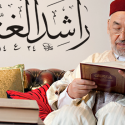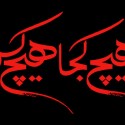Professor Khalid Masud is perhaps one of the most universally-acclaimed Islamic scholars of Pakistan. Himself a product of both traditional madrasa and modern university education, he has researched and written extensively about the development of Islamic law and Muslim political-legal thought. As the former Academic Director of the International Institute for the Study of Islam in the Modern World, Prof. Khalid is seen by many Muslim intellectuals as both an icon and model of contemporary Islamic scholarship. During his recent visit to Pakistan, Dr. Farish A. Noor met up with Prof. Khalid and discussed the problems and obstacles that stand in the way of genuine inter-religious dialogue during these troubled times.
By Farish A. Noor

MUSLIM WAKEUP !: ’It seems odd, even sad, that many Muslim activists still get trapped in this dichotomy between so-called ’progressive Islam’ and ’traditional Islam’. Why is this still the case and is this distinction even real in the first place? Can we hope to overcome it one day?’
Prof Khalid: The distinction between ’progressive Islam’ and ’traditional’ or ’conversative’ Islam is really a nominal one. Most often it has to do with the personalities of the individual actors involved and their own specific educational, professional and even political affiliations and commitments. But I really think this division between ’moderate/progressive’ and ’traditional/conservative’ Islam is illusory and we should think beyond that.
Firstly the actors and agents involved need to ask themselves if they really differ in their objectives. The moderate and progressive Muslim activists tend to be those who are concerned about serious worldly matters like political injustice, economic domination, neo-imperialism, neo-colonisation, democratic reform, gender equality, dialogue with other faith communities, anti-war activism, sustainable development and so on. These are genuine and important concerns that directly affect the Muslim world and humanity as a whole, and these are legitimate objectives to struggle for.
But the progressives should not forget that they are not alone in this. Even the traditional and conservative Muslims are concerned with these issues, though they may use a different language – sometimes more scriptural and religious – and sometimes they do not have the appropriate intellectual tools to deal with them. However we should not look down upon them due to these deficiencies, nor should we underrate their achievements.
The traditionalist and conservative Ulama, on the other hand, should not readily dismiss the modernist and progressive Muslims on the spurious grounds that they are all too ’western’ or ’secular’, for they should realise that their reformist concerns are genuine and they affect them too.
The ulama have done a great service to the Muslim world because they helped to conserve the body of Islamic knowledge and law, but they are fundamentally conservative because this is what they do. But even in their conservative outlook they were, in the past, standing up for the rights of Muslims and their concerns in the past are actually similar to the concerns of the modernists and progressives of today. So for that reason these two camps should not be opposing each other. If they were honest about it and looked closely enough, they would see that they share much more in common than they think.’
MUSLIM WAKEUP !: In our previous discussions you have discussed the adab of dialogue and disagreement in Islam, and how vital it is for Muslims to respect diversity among themselves and come to terms with alterity and diversity outside the Muslim community. Why has it been so hard for us to develop an ethics or adab of recognising difference within and without the Muslim community today?
Prof. Khalid: An essential element in the adab dialogue is to recognize the sincerity of the other party and to appreciate the value of dissent believing that only by recognizing differences can we come to an effective consensus. A forced consensus is short lived and pushes dissent further into animosity. We should not forget that Islamic history is marked for dissent and difference of opinions. These differences arose soon after the death of the Prophet, and they reflected the dynamism of the community and the times. However, since these differences were connected with the struggle of power, they ended in wars and bloodshed to the extent that historians call them Fitna, chaos and anarchy. In fact, it was also the political ideal of the Unity of community that termed dissent as anarchy. Whenever dissent and dialogue operate in a political context and the struggle for power it loses the element of adab.
Still, we find in this period, that the political opponents respected each other. It was later political ideologies like that of the Khawarij and the Shi’a that tried to describe dissent in terms of the ‘Islam and Kufr’ dichotomy. Mainstream Muslim thinking did not allow this division of the Muslim community into ‘Islam and Kufr’, although the majority regarded Ali as the rightful caliph against Mu’awiya. We may also recall that difference of opinion in law (fiqh) was honoured and legitimized on the principle of ijtihad, and although the difference in legal interpretations produced schools and madhahib, they did not develop into sects, nor did they cast each other beyond the pale of Islam.
It was theology that divided Muslims into sects. Why? Because during the Abbasid period theology was made an instrument of political power. The Abbasids had come to power with a religious ideology which condemned its opponents as enemies of Islam. If Mamun tried to impose the Mu’tazili thought, the later Abbasid caliphs from Qadir Bi’llah onwards tried to impose Ash’ari theology. Associated with power, dialogue divided the community into enemy camps. Thus dialogue took the form of a battle for power, a Da’wa, or a dialogue to convert, rather than to negotiate for consensus.
Gradually Da’wa lost its position of a dialogue. It became a monologue within one’s own camp, convincing the people who already believed. It called for the unity of the community by suppressing dissent.
Subsequently a major decline in Islamic thought took place. By not listening sincerely to the dissenting voices, you never know the weaknesses of your own thought, or you miss the opportunity of alternative thinking. The fear that dissent will divide us has been so strong that our ethics of dialogue became very authoritarian and conservative. Ironically, it has not prevented schism, but has rather fostered a kind of mutual mistrust which is more dangerous than even anarchy. Muslims have lost their sense of adab as well as the urge and ability to speak to others. Instead political concerns have come to dominate our interaction with each others and those outside our faith community.
MUSLIM WAKEUP !: Talk of developing an ethics of dialogue and negotiation with the Other today seems very fragile and precarious considering the real facts of geopolitics and the emergence of the USA as a global hegemonic power with its grand global ambitions. While Muslims are trying to develop an ethics of dialogue with the other, we are confronted with the brute realities of neo-colonisation and neo-imperialism. How does the Muslim of today confront the realities of brute force and violence?
Prof. Khalid: To answer this question, I would like to refer to the corpus of eighteenth century Muslim thought which I have been studying. In most of the Muslim world, it was a period in which Muslim political power had either declined or was weakening. During this period, I find, especially in South Asia which is my main area of interest, a shift in Muslim thought. Freed from the obsession for power, Muslim thinkers in this period start looking toward their neighbors in Islam as well as in their geographic environment.
In India there was an effort to understand the differences not only between Shi’a and Sunnis, but also between Hanafis and Shafi’is and Malikis, and between various sufi orders. There was a general trend to go back to early Islam to understand and appreciate the differences.
Similarly, there was an attempt to understand Hindus and the Christians. Shah Waliullah and Shah Abdul Aziz are good examples of this period. Even the Europeans who came to India at that time were more inclined to understand local cultures and religions. There were more than two hundred Europeans who wrote poetry in Urdu. Shah Abdul Aziz was very friendly with the British and the British also respected him for his learning and sagacity.
The whole universe turns upside down after 1857. Following the Indian revolt of 1857 British policy changed from that of the Company’s (East India Company) mode of government to that of an Empire. Muslims were seen as barbarian Jihadis, not prepared to accept the values of civil society. William Hunter’s book on Indian Muslims reads like a modern report on al-Qaeda: Every Madrasa, every Fatwa, and every Muslim was seen as a potential danger for the British.
Centuries of Islamic universal scholarship was thrown aside and Muslims were presented instead as fanatics and terrorists, even in 1857.How the British colonial government handled legitimate dissent echoes today in the neo-conservatism of the American administration. It is an ethics of colonization that restores the principle of might against right. Modernists like Sayyid Ahmad Khan stood for the universal values of reform, rationality and rational dialogue but these voices were drowned in the cries of “traitors for the colonial powers”, raised by the Muslim conservatives. Unfortunately, the conservatives were responding to the atrocities of the colonial powers and they did not support any compromise with the British. The Muslim modernists were pleading for universal values and were asking for compromises in the immediate present for the future.
In my view, the same holds true today. We have to understand that Muslims are divided only with regard to the immediate concerns, but for the future objectives, I believe they do not differ with each other. If American globalization was not associated with American political hegemony, Muslim modernists would have not been discredited. It is the highjacking of the universal principles of enlightenment, democracy, human rights, etc., by the US to steer their own national objectives that has weakened Muslim dialogue with the Other.’
Source: Muslim WakeUp!| March 09, 2004




iThere are no comments
Add yours